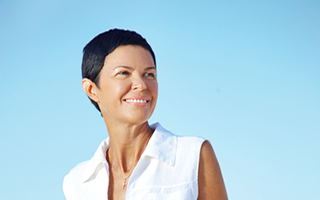
You probably know that one of the best ways to stay healthy as you age is to be physically active. But what if you've always led a sedentary lifestyle? It may seem like more trouble than it's worth to change your ways now. After all, what good can a few years of activity do when compared with a lifetime of inactivity? A new study shows that the answer is actually quite a bit of good!
In fact, according to research published in the British Journal of Sports Medicine, it only takes four years of being consistently physically active to give you a sevenfold increase in your likelihood of aging well compared to spending those years in inactivity. And it doesn't seem to matter how old you are when you start — many of the research participants were well into their 60s.
For this study, researchers examined 3,500 people with an average age of 64. Beginning in 2002, they asked the participants to describe their level of physical activity. They categorized the answers as inactive, moderately active (they did moderate physical activity at least once a week), or vigorously active (at least once a week). Then they checked in with the participants again every two years until 2011.
At each check-in, the researchers noted whether there was any change in activity level and grouped the participants into four categories: always inactive, became inactive, became active, and always active. They also examined the participants' medical records for any instance of heart disease, stroke, emphysema, or Alzheimer's disease. The participants filled out tests to assess their cognitive abilities and mental health as well.
Out of the 3,500 participants, nearly 10% became active over the course of the study. And a full 70% remained active. The rest either remained or became inactive.
At the end of the study, nearly 40% had developed a long-term illness, nearly 20% were depressed, a third were disabled in some way, and 20% were dealing with a cognitive impairment. However, 20% of the participants were healthy agers. And the healthy agers were much more likely to be in one of the active groups.
Those who had always been active at least once a week were three to four times more likely to be healthy agers than those who remained inactive. But those who became active over the course of the study weren't far behind — they were three times more likely than the inactive group to be healthy agers. And those who consistently did the most physical activity fared the best, being a full seven times more likely to be in the healthy ager group.
Exercise also enhances the surface circulation or microvasculature of the facial and body skin. Individuals who exercise generally have better circulation, better skin tone, and better facial color. Skin aging and deterioration is more than merely a cosmetic problem. Exercise addresses both the aesthetic issue as well as the actual tissue and cell health of the skin.
So if you want to age well — from the inside out — and reduce your risk of developing a number of dangerous long-term conditions, from heart disease to depression to dementia to wrinkles and serious skin conditions, make sure you get and stay active. It's never too late to start!
To your health, naturally,

Janet Zand
Source:
http://www.sciencedaily.com/releases/2013/11/131125185600.htm?utm_source=feedburner&utm_medium=email&utm_campaign=Feed%3A+sciencedaily%2Ftop_news%2Ftop_health+%28ScienceDaily%3A+Top+News+--+Top+Health%29